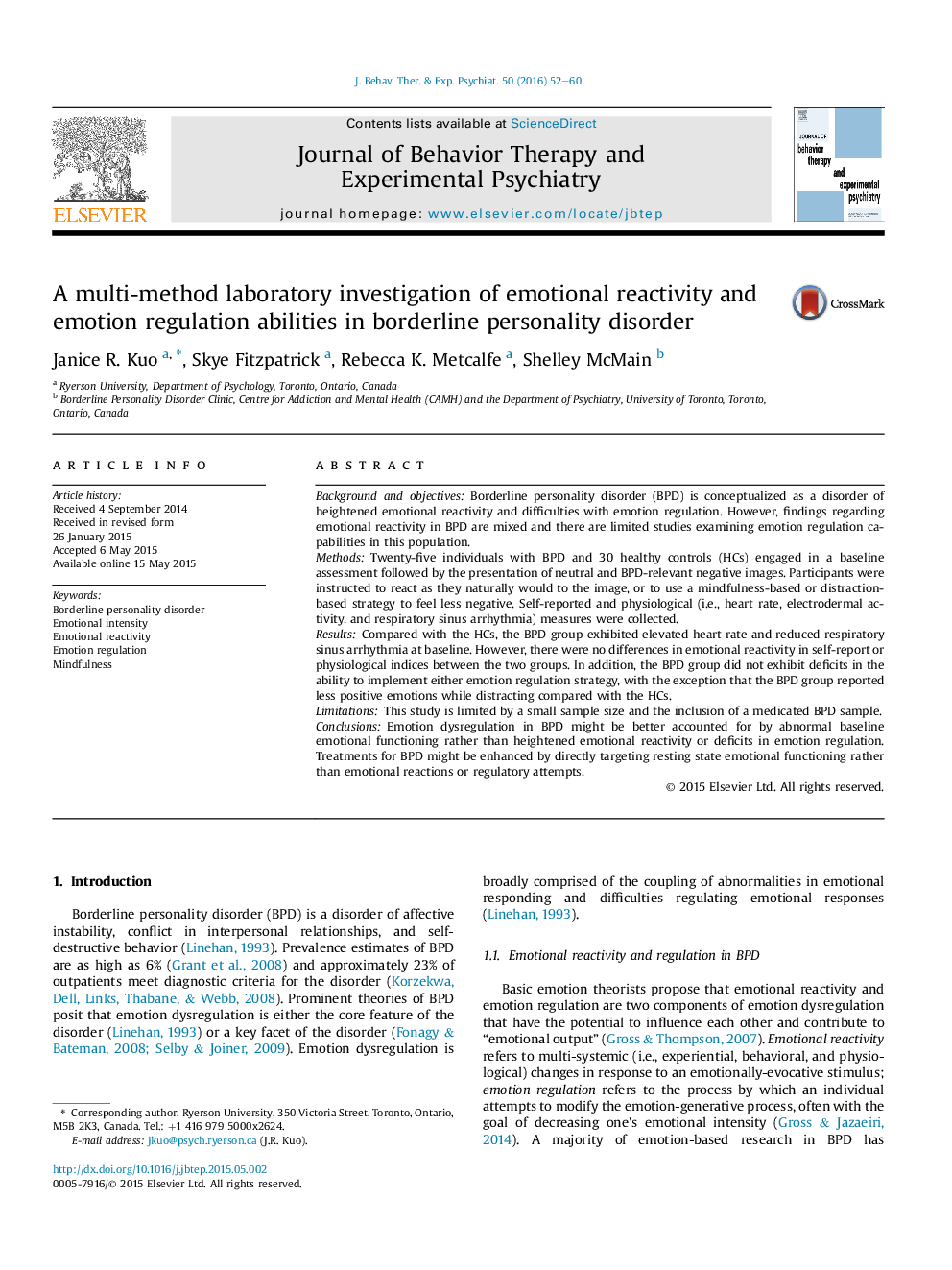| کد مقاله | کد نشریه | سال انتشار | مقاله انگلیسی | نسخه تمام متن |
|---|---|---|---|---|
| 910282 | 1473066 | 2016 | 9 صفحه PDF | دانلود رایگان |
• Individuals with BPD exhibit increased heart rate and reduced respiratory sinus arrhythmia at baseline compared with healthy controls.
• Individuals with BPD do not exhibit greater emotional reactivity compared with healthy controls.
• Individuals with BPD do not exhibit deficits in the ability to engage in mindful awareness and distraction compared with healthy controls.
Background and objectivesBorderline personality disorder (BPD) is conceptualized as a disorder of heightened emotional reactivity and difficulties with emotion regulation. However, findings regarding emotional reactivity in BPD are mixed and there are limited studies examining emotion regulation capabilities in this population.MethodsTwenty-five individuals with BPD and 30 healthy controls (HCs) engaged in a baseline assessment followed by the presentation of neutral and BPD-relevant negative images. Participants were instructed to react as they naturally would to the image, or to use a mindfulness-based or distraction-based strategy to feel less negative. Self-reported and physiological (i.e., heart rate, electrodermal activity, and respiratory sinus arrhythmia) measures were collected.ResultsCompared with the HCs, the BPD group exhibited elevated heart rate and reduced respiratory sinus arrhythmia at baseline. However, there were no differences in emotional reactivity in self-report or physiological indices between the two groups. In addition, the BPD group did not exhibit deficits in the ability to implement either emotion regulation strategy, with the exception that the BPD group reported less positive emotions while distracting compared with the HCs.LimitationsThis study is limited by a small sample size and the inclusion of a medicated BPD sample.ConclusionsEmotion dysregulation in BPD might be better accounted for by abnormal baseline emotional functioning rather than heightened emotional reactivity or deficits in emotion regulation. Treatments for BPD might be enhanced by directly targeting resting state emotional functioning rather than emotional reactions or regulatory attempts.
Journal: Journal of Behavior Therapy and Experimental Psychiatry - Volume 50, March 2016, Pages 52–60
